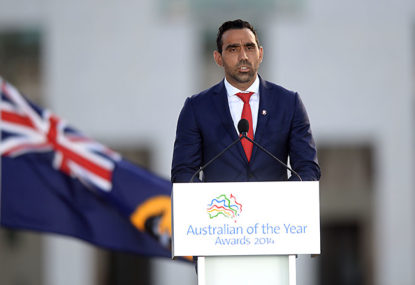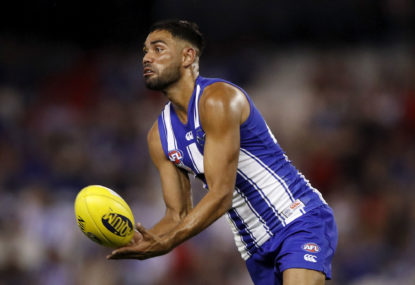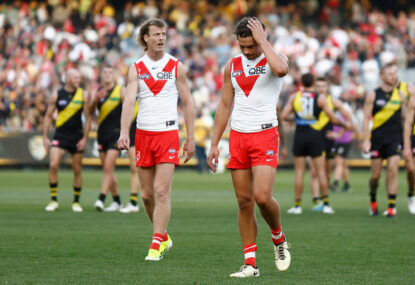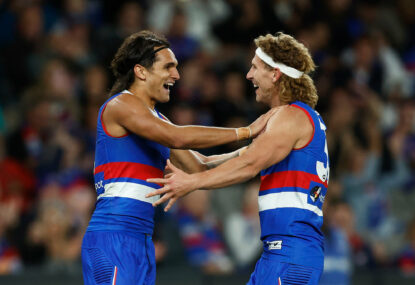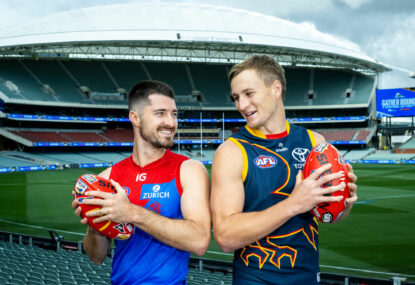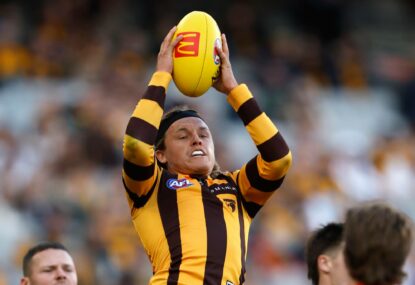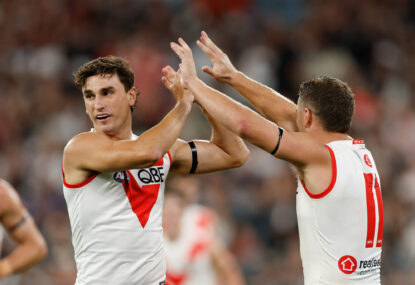On October 28, 2001, John Howard, in a speech announcing his election campaign policy, took to the podium and declared, “We will decide who comes to this country and the circumstances in which they come.”
It was not simply an outline of policy, but rather a watershed moment for Australians everywhere; the moment people became free to be racist, without actually being racist.
Nearly a decade and a half later, the dog-whistling vernacular that Howard used so effectively to satiate our Pauline Hanson-esque fears of being ‘swamped’ is being used to deride and deeply humiliate one of our country’s finest human beings.
If there is one thing that middle Australia cannot stand, it is the accusation of racism. In spite of overwhelming evidence to the contrary, contemporary Australia loves to view itself as a melting pot, one in which all cultures are not only welcomed, but celebrated.
To be labelled a racist is, dare I say, un-Australian – the most dreaded of all labels.
So when Adam Goodes challenged the notion of Australia as such a place, he did not simply set a table for discussion as intended, but rather challenged the suppositions of an entire society in denial. His Australia Day speech and objection to racial slurs directed at him held a mirror up to Australian society, and they did not like what was looking back at them.
When Goodes pointed the finger at a 13-year-old girl, many took the incident not as a man standing up for himself against undignified and disgusting taunts, but as if he were pointing the finger at them directly, and as if he were the perpetrator of the abuse.
When Goodes labelled Australia Day “Invasion Day”, many heard a soundbite and took it as an attack on the diverse Australia they have envisioned, as opposed to the totality of Goodes’ words.
A dilemma faced the people of Australia: desperate to hate Adam Goodes for his strong convictions, but unable to contradict themselves. They could not slur him for the colour of his skin, or his cultural views, but they sure could call him a flog. They could not say, “I don’t like you because you remind me how horrible we have been to aboriginals”, but they could boo and say “I don’t like you as a person”.
Dog whistling is alive and well.
This practice is not unique to Adam Goodes in the world of sport. Richard Sherman, a cornerback for the NFL’s Seattle Seahawks, has experienced an eerily similar phenomenon. Bold, loudmouthed and most importantly black, Sherman, after making a game-winning play in the NFC Championship game (the NFL’s equivalent to a preliminary final), delivered a WWE-style interview, in which he loudly proclaimed to be the best in the game.
After the interview aired, there was an enormous spike across the media, social and otherwise, in references to Sherman as a thug, a term that many, including Sherman himself, saw as being used as a blatant surrogate for the infamous N-word, much in the same way we are seeing a spike in the term ‘flog’ to describe Goodes.
Of course, the booing of Goodes is not solely attributable to racial motivations, even if its basis appears to be rooted in it. Group theory, whereby individuals are drawn to imitate the actions of those around them, in a similar manner to which dog herd sheep, also plays a part. This is why we are seeing such ferocious denials of racial motivations; if racism is – as Tim Soutphommasane puts it in his excellent book, I’m Not Racist But: 40 Years of the Racial Discrimination Act – “the lowest form of judgment (that can be made) of another person’s character”, then such a claim against a group acting unwittingly racist will undoubtedly be met with fervour and contempt.
The claims, “I’m booing because he dives/snipes/threatens with imaginary spears” from people are not reasons for their booing, but rather defences against accusations of racism, and safeguards against their own insecurities about never, ever acting inappropriately.
Whatever the etymology of the booing may be (not that anyone should think it a mystery), its battle lines have clearly been marked. So angry are each side at the opposing viewpoint that discussion is virtually impossible to facilitate.
But one thing is clear; if there were not a racial element to it to begin with, it has almost totally been tarred and feathered by one now.
Goodes, one of the game’s greatest and most entertaining players, is on the precipice of being lost to it. The booing must stop, so the understanding of why it ever happened can begin.






























































































